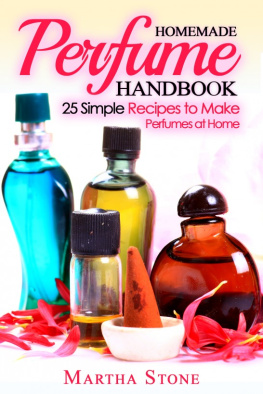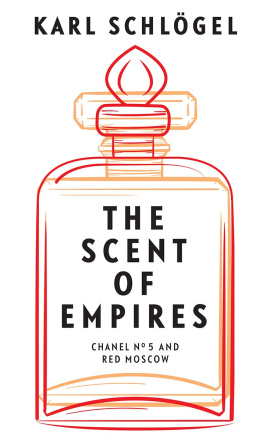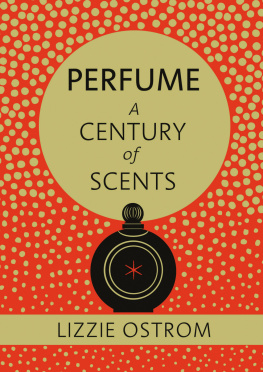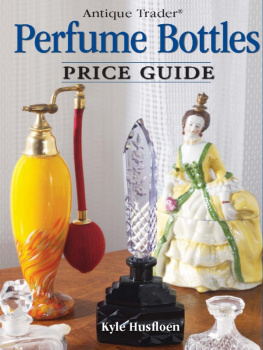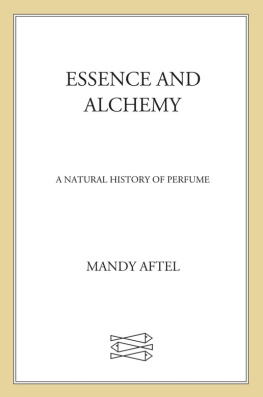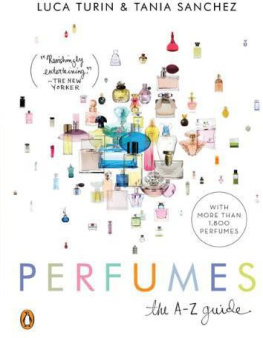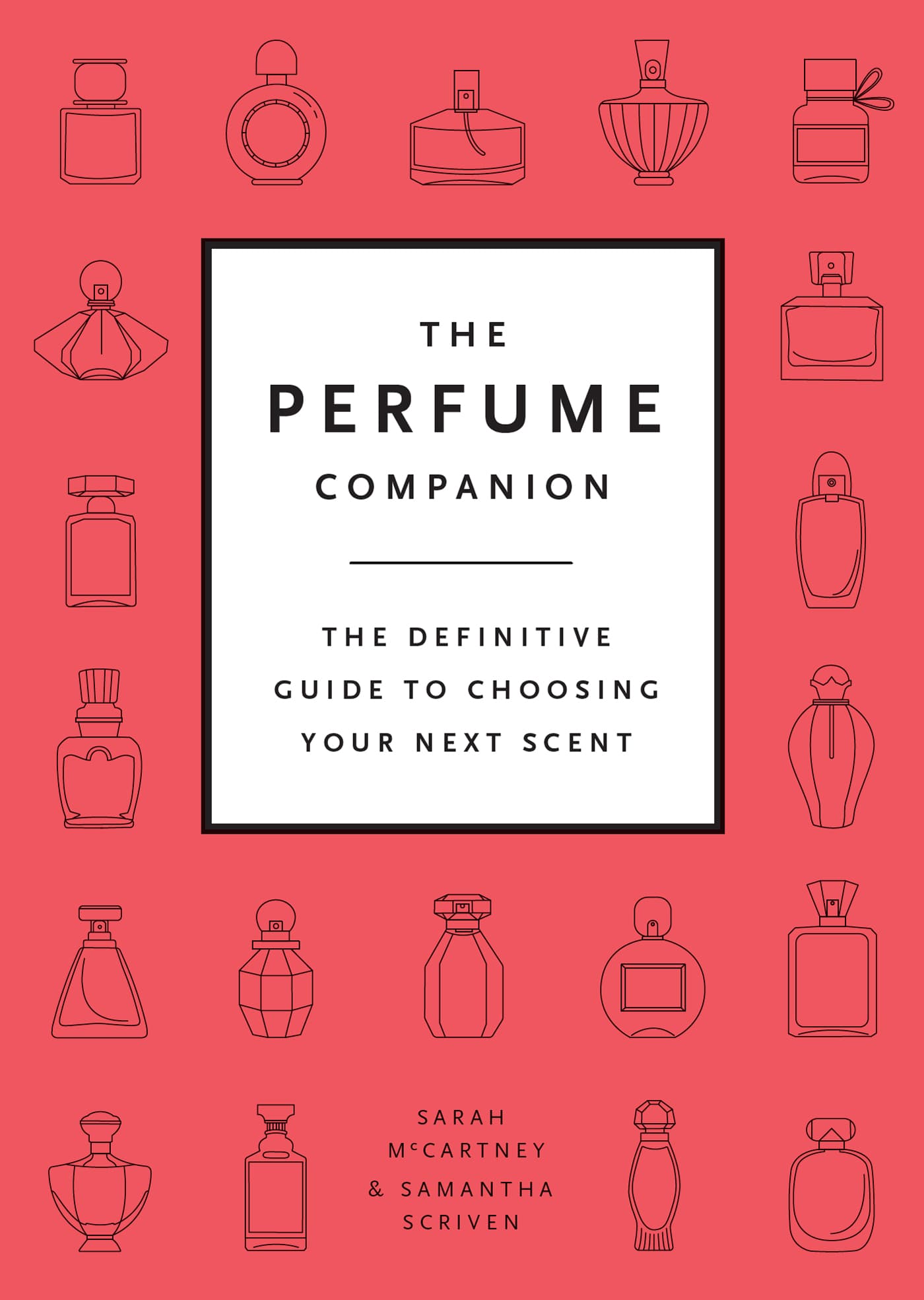INTRODUCTION
When you find a perfume you love, wear it! Your perfume is personal, and the sheer delight of discovering a fragrance that suits you perfectly is like finding a guiding light in the fog.
Over 1,000 fragrances are launched every year, with 20,000 currently on the market, but only you can decide whats right for you whether its classic or current, bargain or bank-raid so take advice, but make up your own mind.
A stunning bottle adds to the experience, of course, but dont let it influence you too much we should wear perfumes we like, regardless of how good they are to look at. There are so many other great scents out there, waiting for you to try them.
Terms in bold are defined in the Glossary (see ).
HOW TO CHOOSE YOUR PERFUME
Choosing perfume is a little like choosing shoes. You might be someone who sticks to a classic black for work, running shoes for weekends, and something shiny for nights out. You could have an entire wardrobe-full, from vintage platforms to hand-made boots. Maybe youre a devotee of a particular brand, someone whos worn the same pair day in, day out since you were twenty, and only buys a new pair when the old one wears out.
The problem is that choosing perfume is like choosing shoes in the dark. You cant peruse the shop and see exactly what you like the look of without trying it first. However lovely the ads, the box and the bottle, youve no idea if youll like it or not until youve given it a sniff.
We do recommend that you test a perfume before you commit, whether in a shop or via a sample. Leave the atmosphere of the fragrance department and take it for a walk in the fresh air. First impressions change, and generally youll need at least twenty minutes with a new fragrance before youll know whether you want to spend a couple of months with it.
Bear in mind that expensive perfume doesnt necessarily smell better than the bargains. The perfumers role is to blend an aromatic experience that will make your day better and bring a smile to your face when you spritz it. Theyll be choosing from a palette of both naturals and synthetics, and their aim is to create a beautiful aroma, regardless of their budget. To find an outstanding fragrance, theres no need to sell all your worldly goods.
WHERE TO START?
Walking through the perfume department of a large store or the vast acres of a duty-free shop can be totally overwhelming. Which is exactly why we wrote this book.
Perfumes fall into different styles, and you might find that some groups appeal to you more than others. We have divided our book into different fragrance types, though some perfumes could fit into more than one section: a fruity floral could also be a floral musk (with some fruit), for example. We have also chosen some popular examples, and taken the if you like that, then you might like these approach, sometimes recommending some more adventurous options for you to track down.
Categorizing perfumes as masculine or feminine is a bit like saying women arent allowed to eat cheese and men arent supposed to have croissants. Most niche fragrances dont impose these rules, allowing their customers to decide for themselves. We believe that you should wear whatever you like, and if you want to cross the big blue-brown/pink-purple divide in the scent department, you are free to do so.
Take your time, explore some brands youve never dreamed of trying. When you find one for you, youll know.
OUR CHOICES
There are around 500 perfumes featured in this book, so of the 20,000 available globally in high street shops right now let alone all the local brands that dont make it on to English language websites theres a fair chance your favourite isnt here. As weve had to miss so many out, we focus only on those we recommend trying, because our parents taught us that if you cant say something nice, you dont say anything at all (at least not in public). Some are an acquired taste and come with an advance warning, but we prefer to review those we enjoy wearing and quietly ignore those we dont.
Weve described many fragrances that you can buy on every high street, and some that you can only find in one specific shop. Where there were two similar fragrances one accessibly priced and one exclusively so weve opted for the affordable one. There are dozens of blogs, online channels and social media groups devoted to the more luxurious brands, and were happy to direct you there too (see ).
Weve added a loose price guide running from to , based on how much youd expect to pay for a 50ml bottle. We appreciate that people have different budgets, but these basically run at:
I can wear this one every day |
Ill treat myself |
Ill wait for my birthday |
Luxury fragrance, often with fabulously extravagant packaging |
We chose not to write about fragrances that we know are discontinued, and never to write anything along the lines of You cant buy this any more, but it was lovely. We take the view that like buses therell be another one along soon. A handful of those weve included were discontinued while we were writing the book, but you might still be able to snap one up in a discount shop.
Weve also had to miss out some much-loved special editions, as they are only available for a season and will be gone before you see this; this is one of the ways that perfume is becoming more like fashion. Humans love exploring new things, and brands love to launch them, but we can get attached to a fragrance as we do to a friend. If you do fall in love with this years special version of a fragrance, buy several bottles before it disappears for ever.
HISTORY OF PERFUME
The perfume industry as we know it came into being around the 1870s when scientists created new materials to add to the plant- and animal-based fragrances which have existed since prehistoric times. We take a short look at how we got from there to here, and how the significance of wearing perfume has altered over time.

THE ORIGINS OF PERFUME
Who knows exactly when the first humans put flowers in their hair or rubbed pine sap on their bodies? When did they decide to grind up a chunk of ambergris or a musk deer pod and add it to a vat of medicinal herbs? All we do know is that as far back as history measures, humans have been using perfume.
The oldest written record of a chemist using distillation to make perfume is from around 3,000 years ago in Babylonian Mesopotamia, now in Iraq. Called Tapputi, she worked as an overseer (Belatekallim) at the royal palace and used flowers, herbs and seeds to make perfume. Theres also archaeological evidence of a perfume factory on the island of Cyprus dating from 4,000 years ago, with hundreds of stills for extracting plant aromas.



